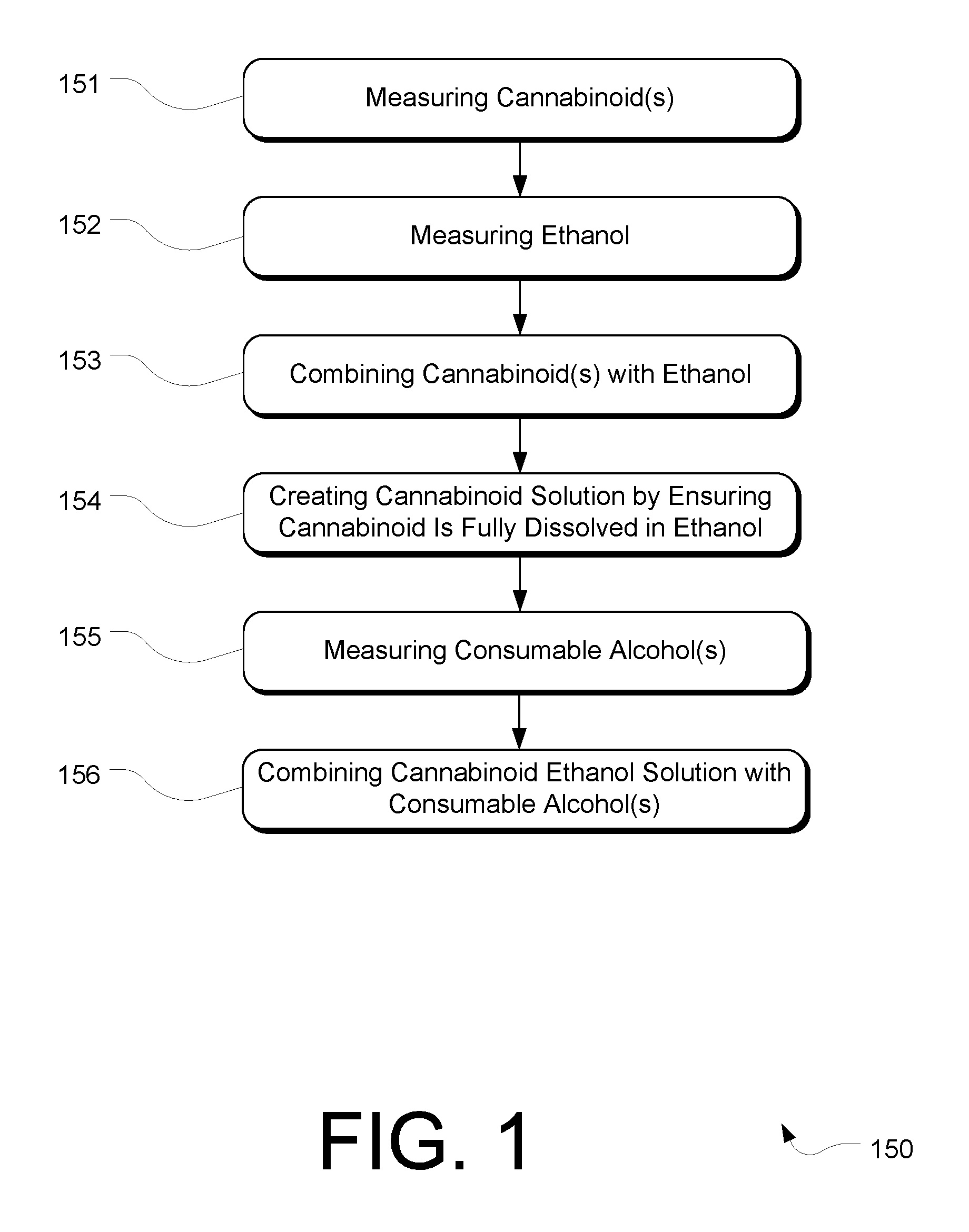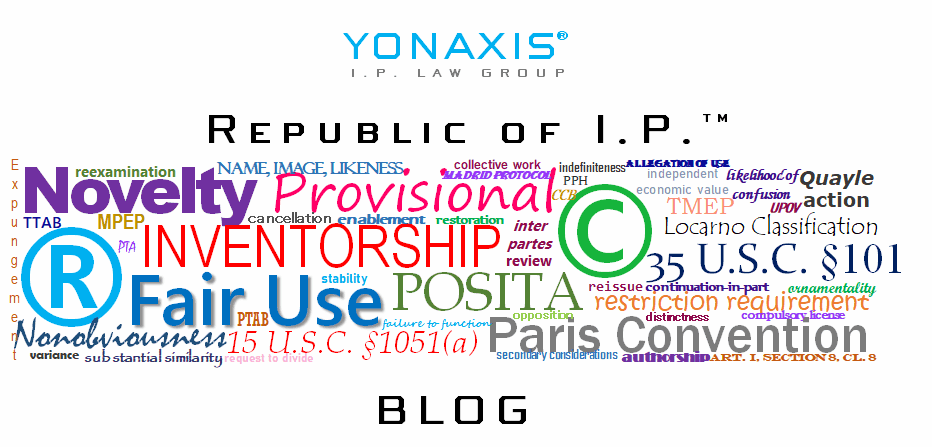U.S. Patent No. 10,085,965 B2 (‘965) issued on October 2, 2018, for “Cannabinoid Alcoholic Drink.” It was issued to applicants/inventors Olga Skuratovich of Denver, Colorado and Filipp Mirzakhanov of Centennial, Colorado.
The sole ‘965 claim is directed to a method of producing a drink consisting of cannabidiol (CBD) and vodka. It is interesting that the entire disclosure is limited to only a combination of one cannabinoid, CBD, and only one alcoholic beverage, vodka. Several embodiments are disclosed with varying amounts of both CBD and vodka, but is roughly in the ratio of 99:1. A specific embodiment includes 1 mL of ethanol (alcohol) to 7.8 mg of CBD; another embodiment includes 5 mL of ethanol to 10 mg of CBD.
Figure 1 below illustrates the claimed invention as described in the ‘965 patent.

The International Patent Classifications are A61K (preparations for medical, dental purposes, namely medical preparations characterized by special physical form, containing organic active ingredients, or undetermined constitution, e.g., traditional herbal medicines); C12G (wine and other alcoholic beverages, namely, preparations); and A23L (foods, foodstuffs, or non-alcoholic beverages, namely, modifying nutritive qualities of foods).
This is example of a sole inventor obtaining patent protection for an invention, in spite of the conventional wisdom that patents are only available to large companies. Cannabis industry patents are relatively new, and more cannabis-related inventions are expected to enter the patenting process in the next few years. The interesting aspect about this invention is the combination of cannabis with alcohol. Of course, marketing of this new product will be challenging. Alcoholic production is regulated by both federal and state laws. At the federal level, alcohol beverage product formulations must be approved by the Alcohol & Tobacco Tax and Trade Bureau (TTB). Formal policy regulations do not allow for alcoholic beverages containing controlled substances under the CSA, which includes marijuana. Any state laws which do allow for alcoholic beverages containing cannabis must follow the TTB guidelines. Oregon, for example, are prohibited except those alcoholic beverages containing industrial hemp. California prohibits cannabis-infused alcoholic beverages altogether (Cal. B&P C. §§25621.5, 26070.2), and includes THC and CBD. As a result, there a practical marketing problem with this particular invention, but marketing aspects are not patentability requirements in order for a patent to issue.
Please contact Yonaxis for more information on any of the IP processes described in this posting if you have any questions.
